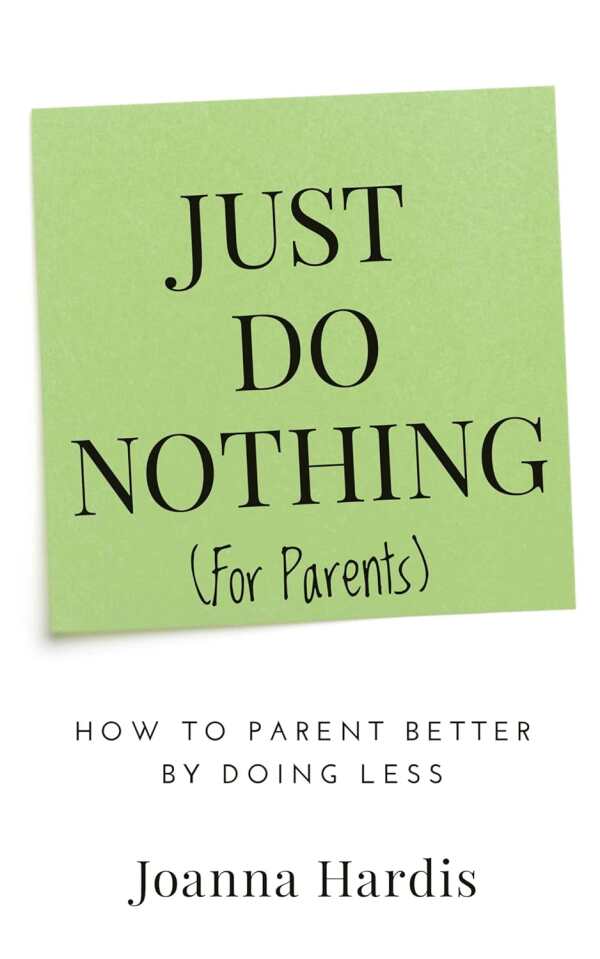Just Do Nothing (for Parents)
How to Parent Better by Doing Less
The illustrative parenting guide Just Do Nothing (for Parents) forwards a framework for combating distress intolerance to improve parenting skills and parent-child relationships.
Family therapist Joanna Hardis’s empathetic parenting guide Just Do Nothing (for Parents) is about raising children while working through stress.
Parents who struggle to maintain their composure around their children, the book argues, suffer from “distress intolerance,” defined as the inability “to persist in goal-directed activities despite aversive internal states.” When distress intolerance interferes with healthy parenting, parents give in to their children’s demands when they know they shouldn’t, it suggests, creating a cycle of stress and emotional dysregulation for both parties. The book explores myriad examples and consequences of distress intolerance and forwards a framework for combating it to improve parenting skills and parent-child relationships.
The book’s recommendations are supported by anecdotes from Hardis’s sessions with her clients, helping to identify harmful behaviors and their consequences. For example, when “Meg,” the sample client used to illustrate distress intolerance and its solutions, claims that her therapy “isn’t working” because her children continue to act out, the book’s gentle explanation is that it’s not the child’s distress that is the problem, but rather the parent’s reaction to it. Its examples of bad reactions include “Your child cries when you leave them with a babysitter, so you stop going on dates with your partner” and “You feel so guilty seeing your child disappointed that you consistently risk overspending rather than saying no.” All the while, it encourages parents to regulate their own emotions before teaching their children to regulate theirs.
While the first half of the book documents moments of distress intolerance and describes how it can erode parent-child relationships, the second half outlines methods of working toward keeping a level head while parenting when stressed. Each chapter centers a step in the process, including pausing, accepting a child’s mood rather than attempting to change it, and listening while continuing to hold boundaries. The chapters build on each other well: Advice on encouraging a child to be independent in one is shown to possibly result in natural consequences for negative behavior in the next. A “Sliding Scale of Distress” is also shared as a straightforward, adaptable model of progression from low-stress to high-stress goals to set, working from activities rated 3–5 on the stress scale to those rated 5–8. And pointed reflection questions conclude each chapter with thought-provoking exercises in self-awareness that tie back to the lessons at hand.
The book’s tone is conversational and measured throughout, expressing sympathy for parents who give in to their toddlers’ tantrums or do their teenagers’ chores for them because its easier than nagging. Comforting reassurances that “no one adopts these behaviors on purpose” and that they “serve to protect us from distress or discomfort” enhance empathy and bolster the book’s nonjudgmental voice. The occasional use of the passive voice leads to some emotional distance in the presentation, though, as when the text states, “Our parenting can get impacted when we’re hijacked by our own discomfort or that of our kids.”
Just Do Nothing (for Parents) is an approachable, encouraging parenting guide for handling family interactions while feeling frustrated or overwhelmed.
Reviewed by
Aimee Jodoin
Disclosure: This article is not an endorsement, but a review. The publisher of this book provided free copies of the book and paid a small fee to have their book reviewed by a professional reviewer. Foreword Reviews and Clarion Reviews make no guarantee that the publisher will receive a positive review. Foreword Magazine, Inc. is disclosing this in accordance with the Federal Trade Commission’s 16 CFR, Part 255.

